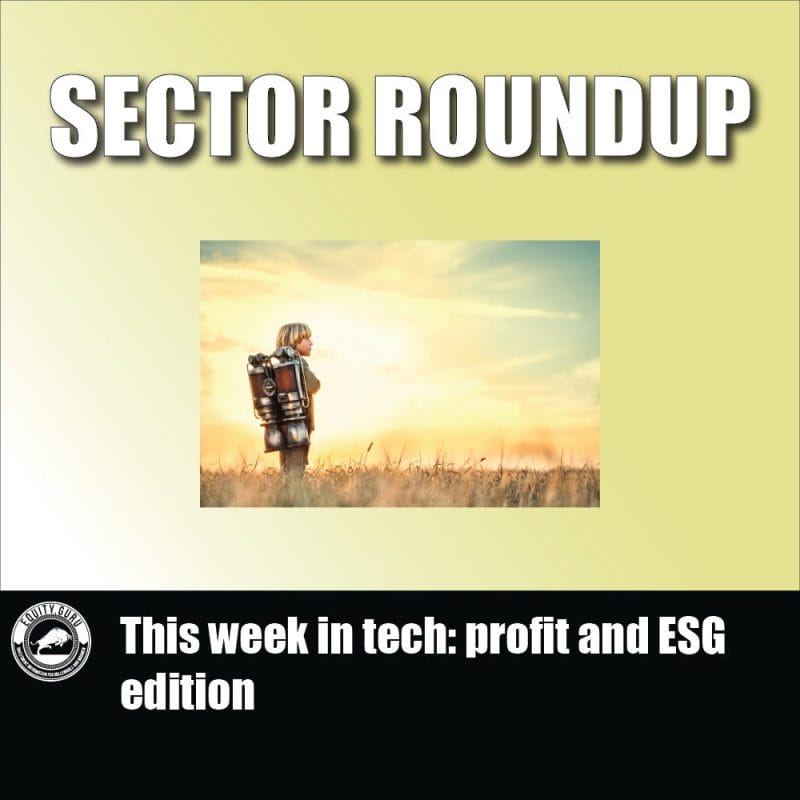I was just starting to serious pay attention to politics following the neoliberal heyday of both pre-and-post-9/11. This as the era where Fox News famously touted themselves as fair and honest journalism while they punted for George W. Bush and the rest of the United States right-wing Republicans squad. The prospects for environmental, social and corporate governance (ESG) weren’t such a big deal. It wasn’t exactly Mad Men but it was a far cry from where it needed to be.
The roots for the environmental portion have been with us since Rachel Carson produced Silent Spring back in the 1960’s and really kicked off the whole environmental movement. But mostly, the issue ended up getting ignored and swept under the rug because it meant big companies would have to start paying attention to their business practices, and eating into their profits.
You get the idea.
Part of the big deal with neoliberal ideology was, of course, everything for the shareholders and nothing for anyone else. It was a company’s sole mission in life to make life easy for their shareholders, and while there’s still a lot of that going around, times have changed in the twenty-odd years.
Nowadays, the world is on fire, figuratively speaking. It will be literally on fire later on this year.
But where there’s calamity there’s opportunity, and seemingly overnight a series of industries have leapt to the fore trying to forestall Al Gore’s presumed inconvenient truth about our own impending demise.
This week we’re talking about ESG with a heavy focus on the environmental portion. If you’re unfamiliar with ESG, it’s an approach to evaluating the extent to which a corporation works towards social goals instead of just maximizing profits. Typically, these goals work to achieve a certain set of environmental benchmarks, as well as a set of goals to go with certain social movements as well as goals with diversity, equity and inclusion.
It’s also an adequate thematic lead to introduce a few different clean-tech companies you might not have known about before. So let’s dive in, shall we?
Hut 8 Mining on track to carbon neutrality by 2025
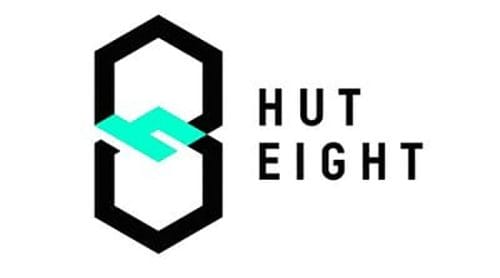
Let’s kick this off with Hut 8 Mining’s (HUT.T) ESG report (environmental, social and governance), shall we?
Here are some stats:
- On track to achieving carbon neutrality by 2025;
- Procured carbon instruments to offset 20 per cent of the company’s 2021 scope 1 and 2 emissions;
- Diverted 61 per cent of waste from landfills;
- Installed 100-per-cent LED (light-emitting diode) lighting at the Medicine Hat and Drumheller mines;
- Added electric skid steers and utility terrain vehicles.
Social
- Proudly supported charities, including the United Way, YMCA and Santa Fund in North Bay;
- Volunteered more than 30 hours for the United Way;
- 50 per cent of executive management roles held by women;
- Zero recordable injuries across the business.
Governance
- 40 per cent of board seats held by women;
- Committed to conducting business with accountability, integrity, respect and teamwork.
Hut 8 joined the Bitcoin Mining Council in 2021. The council is a group of crypto-mining companies that promote energy usage transaprency and encourage using renewable energy sources. They also joined the Crypto Climate Accord, which is the result of a collaborative effort inspired by the Paris Climate Agreement, the Global Blockchain Business council. They were also the first digital asset miner to join the Business Renewables Centre Canada.
“Technology, sustainability, inclusivity and innovation are a part of Hut 8’s DNA. While our executive and board have long been proponents of strong environmental, social and governance standards, we have worked with the entire Hut 8 team to set measurable ESG targets, and are proud to be achieving meaningful results,” said Jaime Leverton, Hut 8’s CEO.
They’ve set the bar. Clearly.
Global Cannabis relies on blockchain inputs for ESG
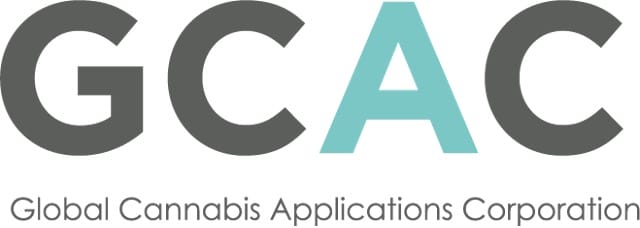
Global Cannabis Applications (APP.C) is one of the few companies in the space right now using blockchain for its potential. They’re using the data inputs to keep a record of their cannabis product at each stage of its life cycle to maintain authenticity. Their latest deal is with ThingBlu (TB), a Kirkland, Washington, based workflow management and data management tool that collects data and analytics.
ThingBlu’s data will give growers a chance to share data on the blockchain like nutrients, average temperature and humidity as well as plant inspection tasks to add in the transparency. This relates to ESG in a tangential way. The data collected can be used for stronger ESG reporting because of the trustless nature of the blockchain.
“From the first time I met the GCAC team in Las Vegas in October, 2021, I could see the impact of the ecosystem GCAC was creating for supply chain management and ESG (environment, social and governance) reporting. Transparency starts with the employees and the detailed information of the steps they take, that are often not seen by the consumer, that make a huge impact in the final product. Watering schedules, temperature and insect control, eyeballing every plant on a regular basis all are critical steps in delivering a beautiful living final product,” said Kevin Gorman, founder and CEO of ThingBlu.
Aduro Clean Technologies joins Canada Plastics Pact
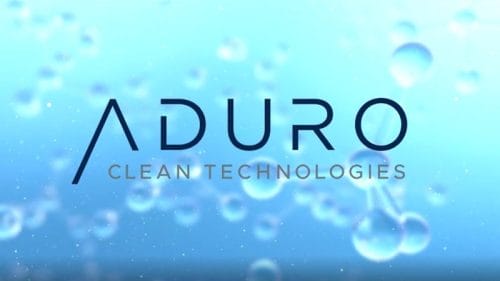
Aduro Clean Technologies (ACT.C) joined the Canada Plastics Pact (CPP) earlier this week.
Okay. I know what you’re thinking. Who is Aduro Clean Technologies? And what is the CPP.
Well, allow me to explain.
Aduro Clean Technologies is perhaps not unexpectedly, a clean-tech company that develops water-based technologies to chemically recycle waste plastics, convert heavy crude and bitumen into lighter, more valuable oil and transform renewable oils into higher-value fuels or renewable chemicals.
The company has a proprietary hydrochemolytic technology which actives properties of water in a chemistry platform and operates at relatively low temperatures and cost, which aims to convert low-value feedstocks into 21st century resources.
The CPP is part of the Ellen MacArthur Foundation’s global Plastics Pact network, which joins other plastics pacts across the world in a network of national and regional initiatives devoted towards making the vision of a circular economy for plastics a reality. The CPP gets businesses, politician types, NGO’s to work together to find a national solution to plastic waste.
“Waste plastic is a fast-growing global concern in need of innovative circular solutions that are practical, sustainable and capable of driving real social-economic change. Aduro is proud to support the Canada Plastics Pact, as we strategically partner with industry and all levels of government to focus on commercialising low-carbon, circular approaches to upcycling plastics. Aduro knows that a circular economy for plastics is within reach. We look forward to working collaboratively across the value chain to implement chemical recycling of plastics with our patented hydrochemolytic technology process,” says Ofer Vicus, chief executive officer at Aduro.
Given that there’s presently an island made entirely of waste-plastic floating somewhere off the coast of California—there’s probably a market for this kind of tech. And hey, if you can make a little scratch while keeping the species around for another 100 or so years, that’s good. Do it.
GBLT receives $791,000 solar energy product order
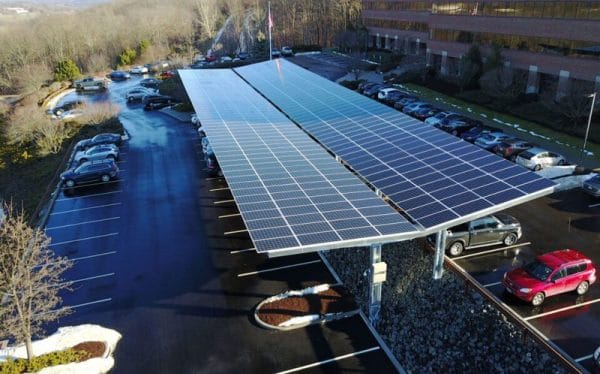
GBLT (GBLT.V) secured a new order for its solar energy solutions with one of the largest consumer goods firms going. The contract means 584,000 euros (USD$791,000 roughly) and will mean a full buildout of solar-powered carports, which also drives the client’s carbon-neutral goal by generating carbon credits.
Seriously, these guys are looking to make solar powered carports. Given that gas is at an absolutely crazy all-time high, you have to admit that battery-powered electric vehicles are looking damn appealing, and will only continue to grow in appeal as the full length and breadth of our addiction to fossil fuels comes to the fore. I seriously don’t think we’ve seen it all. Not yet. Soon, though. Lining up at the pump to give away half your paycheque is probably a reality for some people, but when it’s a reality for people it wouldn’t normally affect is when we’ll see serious headway.
If we survive that long.
“The client, with offices in 79 countries, has a goal to become carbon neutral by 2030, and we believe that this relationship will lead to significant additional opportunities with this client and others to play an instrumental role in facilitating generation of carbon credits for these clients,” said Dr. Thilo Senst, chief executive officer of GBLT.
GBLT operates through its European subsidiary, GBT GmbH. They design, manufacture and supply mobile storage and battery solutions. They’re a leading provider of renewable energy solutions through their solar division, and participate frequently in the rapidly growing solar energy market.
“The carbon credit market globally surged to a record 760 billion euros ($1,026-billion) in 2021 as a result of governments globally driving their economies to reduce carbon emission. In addition, within Germany, the government policies for clean energy are beginning to be mandated, driving significant demand for renewable energy. Our high-margin and established solar energy business is experiencing significant demand from residential and commercial properties and we are seeing this part of our business playing a vital role to the growth of the company’s future,” said Dr. Senst.
ECOX Spruce Construction gets licensed for green infrastructure products
Eco Innovation Group (ECOX.OTC) announced that their ECOX Spruce Construction green construction subsidiary pulled in a General Contractor’s License from the State of California.
Eco Innovation Group’s raisons d’être is helping to nurture the most innovative and impactful products and services, and deliver those to the world to improve the quality of life, while delivering value to their shareholders. The proverbial everybody wins scenario. Well, isn’t that charming?
“Obtaining a GC License is the initial step for our ECOX Spruce Construction subsidiary formed early this year, and it will allow us to expand operations in the rapidly growing Green Infrastructure space. Our focus on ecologically sustainable infrastructure is core to the ECOX business. Large chains such as Starbucks, for example, are actively building out locations in California to be resource positive, using solar infrastructure, additional efficiencies, and reclaimed wood construction. A growing number of major organizations are moving in the same direction,” said Julia Otey-Raudes, CEO of Eco Innovation Group.
Honestly, from what I’ve heard from friends of mine who live and try to run a business in California—it’s a rich state, but the government wants a piece of everything you do by way of licensing or taxation. It sounds absolutely crazy and there’s no wonder why companies are deciding to pick up stakes and go to less rent-seeking jurisdictions.
That being said one of the key issues the government should involve themselves is in protecting the environment. That’s a no-brainer. If companies won’t step up and take responsibility for the way they run their shows, they should suffer in both the boardroom and in the public eye.
Regardless, according to the California Department of Consumer Affairs Contracts State License Board (CSLB) page, businesses and individuals who construct or alter any building, highway, road, parking facility, railroad, excavation or other structure in the state must be licensed to perform work. The license was given on Friday, May 6, 2022, and ECOX is looking forward to getting to work on Green Infrastructure products.
MOGO enjoys a bump in total revenue
Mogo’s (MOGO.T) contribution to ESG is through their carbon-offsetting program. They teamed up earlier this year with Vancouver-based reforestation platform, veritree, to plant a tree in conjunction with use of their MOGO Visa Platinum card.
They put out their financial earlier this week, so let’s see how they did.
Total revenues are expected to grow between 20% to 25% year over year to $69 to $72 million. This compares to previous guidance of $75 to $80 million.
The Company now expects improving adjusted EBITDA as a percentage of revenue beginning in Q2 2022 (versus previously communicated guidance of improving adjusted EBITDA as a percentage of revenue in the second half of the year).
Now the company is looking to expand its ESG and sustainability portfolio beyond veritree. They’re starting to build partnerships in the environmental innovation space. More later, we can presume.
“Our diversified and primarily recurring revenue base proved resilient in the first quarter as we continued to show strong growth during a more challenging period for many fintechs. Although we are continuing to make substantial investments in new products and our platform given our view of the long-term opportunity, we continue to have control of our growth investment dials should we find it necessary to moderate our investments and move more quickly towards profitability,” said Greg Feller, President and CFO of Mogo.
—Joseph Morton

